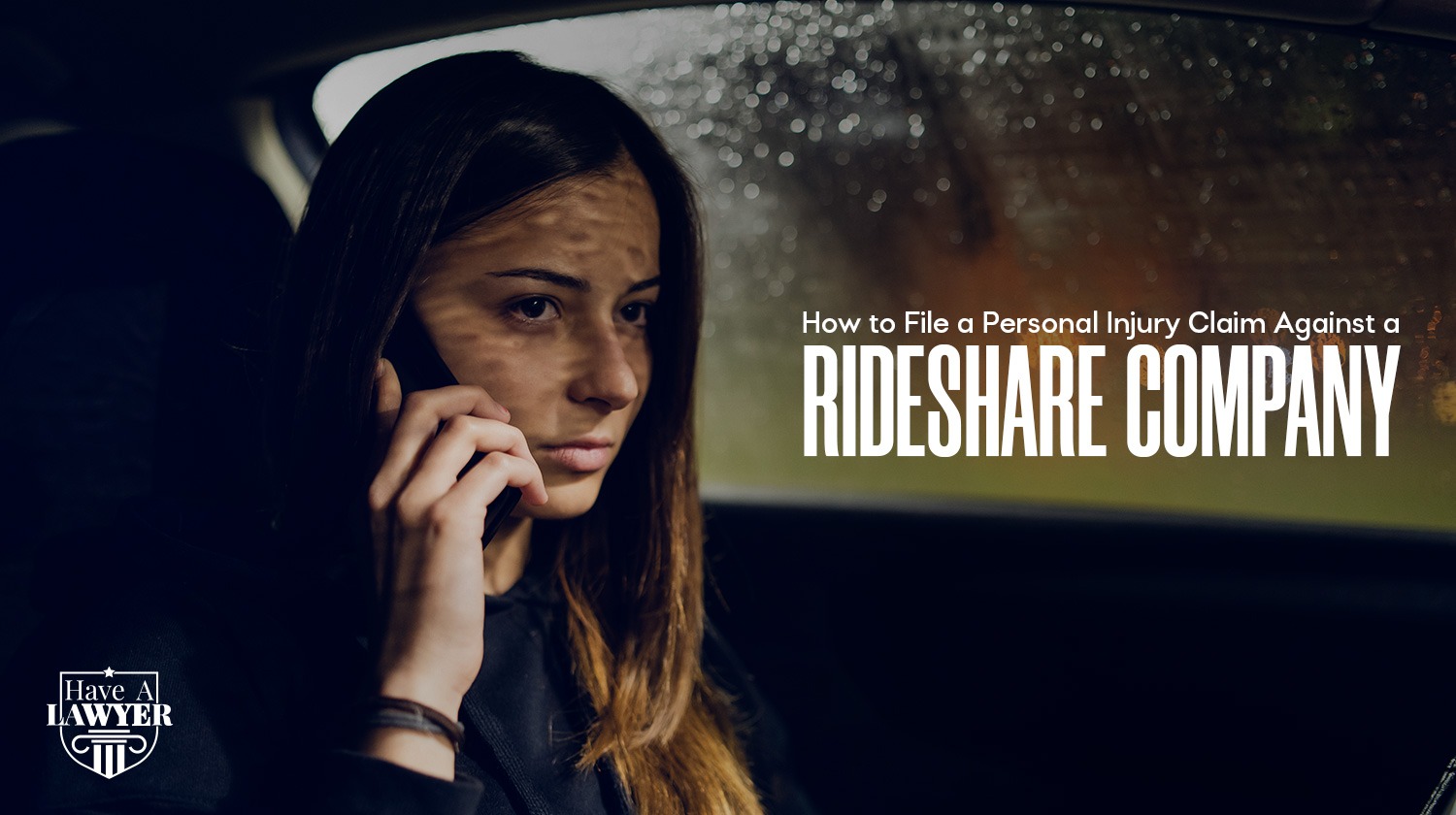In today’s world, there is hardly any person who has not taken a ride from ridesharing companies like Uber or Lyft. Often, unfortunate accidents happen during the ride, when the passengers have to bear personal injuries. Passengers can claim compensation for their injury, but these ride-sharing companies have some unique policies and regulations that the passenger must carefully examine before filing a claim against a rideshare company. These ridesharing companies do not work like traditional travel companies; therefore, one has to navigate carefully and smartly for the Rideshare Passenger Lawsuit.
When the accidents directly involve drivers’ negligence, passengers can seek compensation from the ridesharing companies. The services provided by the companies keep on expanding, thus it is important for victims of rideshare accidents to thoroughly understand and weigh their in-app instructions regarding insurance. It is important to know all the legal nuances and civil rights before claiming Lyft injury compensation or filing an Uber accident lawsuit.
In this blog, we shall study the necessary steps one should take before filing a claim against a rideshare company.
Understanding Liability:
Whether you were a passenger travelling in the cab, or another driver driving parallel, or just another pedestrian harmlessly walking by, if the driver at fault is an employee of the ridesharing company, you’re licensed to file a personal injury claim against the ridesharing company. However, it is a confusing terrain to navigate if a person wishes to file a personal injury lawsuit against a ridesharing company. The aftermath of a ridesharing accident is never straightforward or free of complexities.
A number of factors are responsible here. For instance, the status of the driver’s app at the time of the accident, as the availability of insurance for apps like Uber and Lyft depends on the factor if the driver was logged into the app or not. The level of insurance coverage, however, again depends on multiple factors, like whether the driver was waiting for a ride, was en route to pick up, or was actively transporting a passenger to another destination.
As stated earlier, rideshare insurance policies are twisted and layered. To simplify, let’s say that at the time of the accident, the driver was waiting for a ride request, so the insurance coverage would be low. On the other hand, the insurance coverage gets enhanced when the driver is enroute or transporting a passenger. This conditioned structure and process of insurance can make the procedure of claiming difficult and complicated. To make this journey of making a Rideshare Passenger Lawsuit smooth and easier, trusted and experienced legal firms like Have A Lawyer can be contacted, who can expertly handle any Uber accident lawsuit or other ridesharing accident claim and help the injured victims to win back their suiting compensation in a fair and justified manner.
Steps to Take After a Rideshare Accident
Being involved in an accident, whether as a passenger, pedestrian, or another driver, can be traumatic. But when it involves a ridesharing company, there are additional legal complexities to address. If you’re planning on filing a claim against a rideshare company, following these steps can significantly strengthen your Rideshare Passenger Lawsuit:
1. Seek Immediate Medical Attention
Your health and safety should be your top priority. Even if the injury seems minor, it is essential to get a professional medical evaluation. Not only is this vital for your well-being, but it also creates a medical record that can be used to support your injury claim.
2. Report the Incident
Make sure to report the accident to the local authorities and obtain a police report. Additionally, report the incident through the rideshare company’s in-app system. Both Uber and Lyft have dedicated procedures for accident reporting that create digital documentation for future reference.
3. Gather Evidence
Collect as much information as possible at the scene. This includes:
- Photos of the accident site, vehicles, and your injuries
- Contact information of witnesses
- The rideshare driver’s name, license plate, and insurance details
- Screenshots of your trip details from the rideshare app
This evidence plays a critical role in building a strong Uber accident lawsuit or Lyft injury compensation case.
4. Determine Who Is Liable
As mentioned earlier, the app status of the driver at the time of the incident significantly impacts who is responsible for covering damages. If the rideshare driver was not logged into the app, their personal insurance would be responsible. If the driver was online and actively engaged in a ride, then the company’s insurance policy typically applies.
However, determining this is not always straightforward. It’s often best to work with an attorney experienced in Rideshare Passenger Lawsuit to verify driver status and identify the appropriate insurance coverage.
Why Legal Support Is Crucial
While Uber and Lyft do offer insurance coverage, dealing with these large corporations is rarely easy. They often have powerful legal teams and insurance adjusters whose job is to minimize payouts. Without expert guidance, victims may find themselves overwhelmed or undercompensated.
That’s where trusted legal professionals like Have A Lawyer step in. Whether you are pursuing a Lyft injury compensation claim or filing an Uber accident lawsuit, an experienced personal injury attorney can:
- Navigate the multi-layered insurance policies
- Handle negotiations with insurance companies
- Gather and present strong evidence
- Fight for fair compensation in court, if needed
Hiring a lawyer doesn’t just make the process easier, it also increases the chances of getting the compensation you rightfully deserve.
What Can You Claim Compensation For?
In a Rideshare Passenger Lawsuit, victims may be eligible for several types of damages, including:
- Medical expenses (hospital bills, surgeries, ongoing treatments)
- Lost wages due to inability to work
- Future loss of earning capacity if the injury leads to long-term disability
- Pain and suffering caused by the physical and emotional trauma
- Property damage (if your vehicle was involved in the accident)
- Out-of-pocket expenses related to the injury
The exact compensation will depend on the severity of your injuries, the impact on your livelihood, and how clear the liability is. A detailed claim backed by evidence and legal expertise will always have a better outcome.
Conclusion
Ridesharing has changed the way we commute, but when accidents happen, they bring along a web of complications that differ from traditional traffic incidents. Whether you’re a passenger injured while riding, a pedestrian hit by a rideshare driver, or another motorist affected by an app-based vehicle, you deserve to be compensated for your suffering.
The process of filing a claim against a rideshare company may be daunting, but it’s not impossible, especially when you’re backed by experienced professionals who understand the nuances of Uber accident lawsuits and Lyft injury compensation station claims.
With the right legal support, you can navigate the legal system confidently and focus on your recovery, knowing that your case is in capable hands. If you or a loved one has been affected by a rideshare accident, don’t hesitate to reach out to firms like Have A Lawyer, which specialize in handling such complex injury cases with dedication and clarity.


